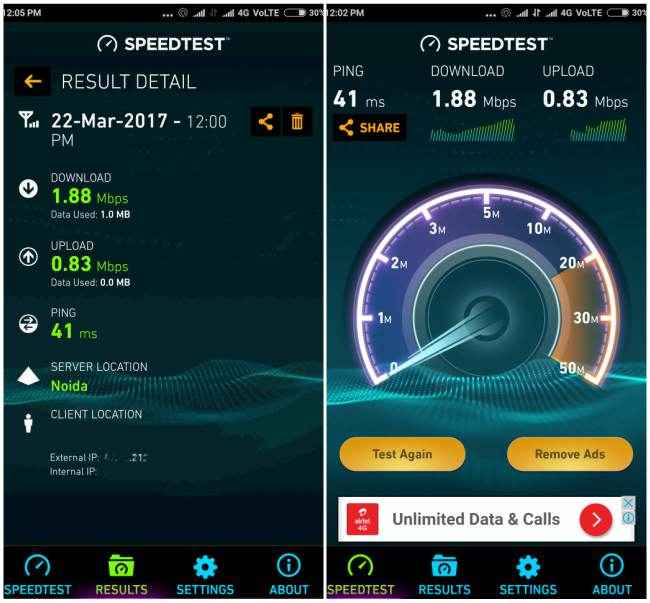


Similarly, the report found that fixed broadband providers offered a mostly consistent experience of 25Mbps down and 3Mbps up. In other areas, all of the measured providers posted more or less the same figures- video performance scores, which were measured by a cross-section of failure rates and average bitrates, were all within less than one percentage point of each other, in an 0-100 aggregate score system. Verizon was the clear winner in terms of multiserver latency, however, posting an average 15ms response time, with the rest of the providers posting figures of between 23 and 32ms. According to Ookla’s report, the fastest average upload speeds were posted by AT&T, at 125Mbps, ahead of Verizon at 108Mbps, with the rest of the field at 30Mbps or below. There was no clear strongest performer among fixed broadband providers, as various networks outperformed one another by wide margins among different metrics. No clear speed winner for fixed broadband T-Mobile’s 69% availability figure topped AT&T’s 59%, and considerably outperformed Verizon’s 32%. T-Mobile also led in Ookla’s 5G availability metric, which captures the share of a network’s 5G-capable users who spent the majority of their time connected to the company’s 5G network.

The carrier’s median 5G download speed was 193Mbps, well ahead of Verizon’s 119Mbps in second place, and more than twice AT&T’s 81Mbps figure. T-Mobile, however, led the pack by a considerable distance in terms of 5G performance, the report found. The most consistent throughput performance was also tightly contested among the big three carriers, with 84.4% of tests on T-Mobile’s network reporting at least 5Mbps download speeds, compared to 79.6% and 79.4% for Verizon and AT&T, respectively. Multiserver latency-which measures the latency users can expect to experience when the network isn’t under particularly heavy load conditions-was topped by Verizon in the mobile broadband category, at a median of 59ms, compared to 60ms for T-Mobile and 61ms for AT&T. The figures were gathered via Ookla’s online Speedtest website that can test users' internet upload and download speeds, latency, and more. T-Mobile retained its place as the consensus fastest mobile data provider in the US, posting a median download speed of 116Mbps and outstripping Verizon and AT&T by a roughly two-fold margin in the latest market analysis report from network analysis firm Ookla.Īmong fixed-broadband services Ookla's third-quarter testing found that Spectrum beat Cox and Xfinity for the top spot with a median download speed of 211Mbps.


 0 kommentar(er)
0 kommentar(er)
